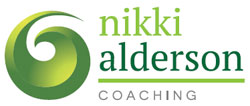A 4 minute read on knowing your value and how to become comfortable with it and negotiate it effectively.
Ever felt shy about recognising your own value and, in particular, your value-add for clients? How about being reluctant to:
- time record
- charge clients, or
- engage with clients over hourly rates, cost estimates/ queries or to update them on cost issues that arising during a case?
Time and again when speaking about, or coaching lawyer clients around, confidence, I’m noticing a reluctance to recognise their value, and in particular the value that they add for their clients.
Here’s my 4 step process for getting comfortable around the value offered to clients and how to negotiate effectively for it:
1. Identify your value
First, consider the standard “everyday” stuff that you do for your client, that every other lawyer within your line of work would does.
Then consider what it is YOU do, that makes a material difference to them. What is your USP or “value-added” that sets you apart, ensuring that you will be valued at a different, and higher, rate to others? Consider this in terms of your qualifications, skills, and life-experiences that differentiate you and make you good at what you do. It goes without saying that experience commands a substantially higher fee compared to those more junior.
You might find it helpful to work out as a guide an average “market rate” within a certain range, albeit I don’t recommend you use that as the determinative factor, given how unhelpful comparisons can be.
With all those factors in mind, pitch your fee accordingly, without devaluing yourself.
2. Get comfortable with your value
Once you’ve identified your own value, get comfortable with the feeling that you’re worth it. Using positive mantras may help to reinforce the point to yourself, like the classic “Because I’m worth it…”
Remind yourself of that unique experience I mentioned earlier, and ask, looking at the facts, not being influenced by feelings:
-
- “What do I feel I am worth?”
I had a client approaching a similar question recently from a place of under-confidence, holding back on a price increase, worrying she wasn’t worth it and that she’d loose clients if she charged more. When she became aware others offering a similar service charged substantially more, she introduced what she initially felt was a significant increase.
Once she got comfortable with what she realised she was worth, and gained the confidence to stick with it, she found that clients neither objected nor left her.
Dial the noise down then on the negative mindset/ limiting beliefs, and get comfortable with the facts; your confidence will follow.
3. Negotiate confidently and effectively for your value
I had something of a “skin crawl” moment during lockdown when I had cause to review the fees I’d been charging at my first-ever workshop in my first year of business nearly 6 years ago.
To this day, it still serves as a great reminder that if we charge too little, we devalue ourselves and our services. Clients wonder why we’re selling ourselves short and go elsewhere in fact, fearing quality may be compromised with price.
-
- Ask “what would clients expect/ be prepared to pay?”
Instead of fearing pricing yourself out of the market, (like that client of mine), reframe it, and consider how charging too little can negatively impact upon credibility.
Knowing our own financial worth, and asking confidently for it, generates confidence not only in ourselves but in others. Pricing too cheaply can lead others to undervalue our services.
Just think about take-up for events where there are free tickets compared to those charging a nominal fee. By charging, an instant value-add is created, making people want to show up. Not dissimilar from seeing how people often treat better the things that they pay more for, take clothes or cars as examples. In the same way, employers, colleagues, clients and customers are more likely to treat your services, and you, with more respect where your prices reflect your value.
On this same point, it always helps to remember your value specifically to those clients who are particularly highly valued themselves. I have no hesitation in charging what I do when I realise the value of my career progression coaching services to female lawyers going for £500k roles. If, with my help, they secure such a role, the investment in my services has been well worth it for the significant pay rises that they secure.
Always worth remembering the Stella Artois tag line: “Reassuringly expensive.”
4. “The key to success is to start before you are ready…”
Finally, pick a fee and run with it. The more you do that, the easier it becomes.
Don’t let fees hold you back. You can always alter them with subsequent clients, and continue to tweak them until you feel you have them right.
Either way, important to dip your toe into the water and go for it, however counter-intuitive or awkward it may feel. As the saying goes, “the key to success is to start before you are ready,” and who doesn’t want that?!
Nikki Alderson Biography
Nikki Alderson, specialist coach, speaker, author, and former Criminal Barrister:
- supports legal organisations retain female talent; and
- empowers female lawyers to achieve career ambitions.
Nikki specialises in:
- Women leadership;
- Enhanced career break returner support; and
- Workplace resilience, confidence and wellness.
She is the author of Amazon No.1 Bestseller Raising the Bar: empowering female lawyers through coaching, (https://amzn.to/3fodKQX), nominee for 2019 Inspirational Women Awards, and finalist in 2020 Women in Law Awards and 2019 International Coaching Awards.

